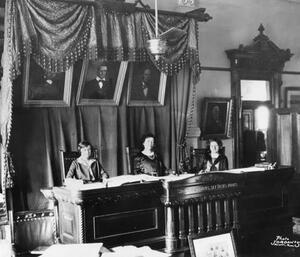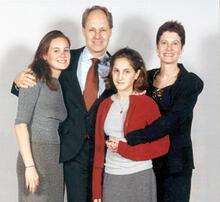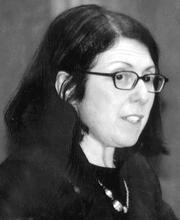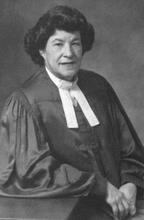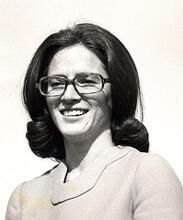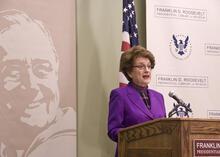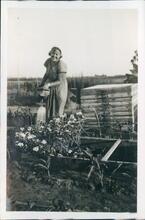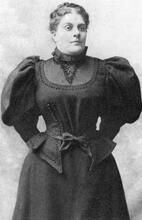Hattie Leah Henenberg
Courtesy of the Texas State Library and Archives Commission.
Due to highly unusual circumstances, Hattie Leah Henenberg became a member of the first all-female state Supreme Court when almost every male judge and lawyer in the state had to recuse themselves from a case. In 1924 she became founding director of the Dallas Free Legal Aid Bureau. The following year, the governor of Texas appointed her as one of three female special associate justices to hear an appeal involving Woodmen of the World, a fraternal group whose members included most male judges and lawyers in Texas. Henenberg went on to serve as assistant Texas attorney general from 1929 to 1930, special assistant US attorney general in 1934, and an assistant district attorney in Dallas from 1941 to 1947.
Article
In 1925, a Texas governor reluctantly appointed the first all-female supreme court to hear an appeal involving Woodmen of the World, a fraternal group whose members included virtually every male lawyer in the state. Hattie Leah Henenberg, a lawyer since 1916, was among the trio of special associate justices. A pioneering jurist who launched her legal career as a stenographer, Henenberg set other precedents. In 1924, she was founding director of the Dallas Free Legal Aid Bureau and, in the 1940s, she created a unit in the Dallas district attorney’s office that jailed fathers who failed to pay child support.
Born on a farm in Ennis, Texas, on February 16, 1893, Hattie Henenberg was the second child of Hungarian-born Rosa (Trebitsch) and Samuel Henenberg, parents of four daughters and two sons. The family moved to nearby Dallas in 1904 to help her ailing paternal grandfather, Lazar, owner of Dallas’s oldest pawn and jewelry shop. Henenberg took night classes from 1913 to 1916 at Dallas Law School, part of Southern Methodist University. She was assistant Texas attorney general from 1929 to 1930; special assistant U.S. attorney general in Washington in 1934, and an assistant district attorney in Dallas from 1941 to 1947. In addition, Henenberg was a delegate to the 1932 Democratic National Convention in Chicago, a member of the Order of Eastern Star, Business and Professional Women’s Club, Temple Emanu-El, and Dallas president of Zonta International. The ideals of social justice that permeated her quest for legal aid to the poor reflected the principles of Judaism. Judaism also manifested itself through her decision not to marry a non-Jew and through religious observances such as not eating pork.
Hattie Leah Henenberg died in November 1974.
BEOAJ; Henenberg, Sam [nephew]. Telephone interview by author, May 2, 1996.
Stayton, John William. “The First All-Woman Supreme Court in the World.” Holland’s Magazine (March 1925): 5+, and “Miss Henenberg, Law Pioneer, Dies.” Dallas Morning News, November 29, 1974, 11-B.
UJE.
Who’s Who of American Women (1958, 1961, 1964).
WWIAJ (1926, 1928, 1938).

